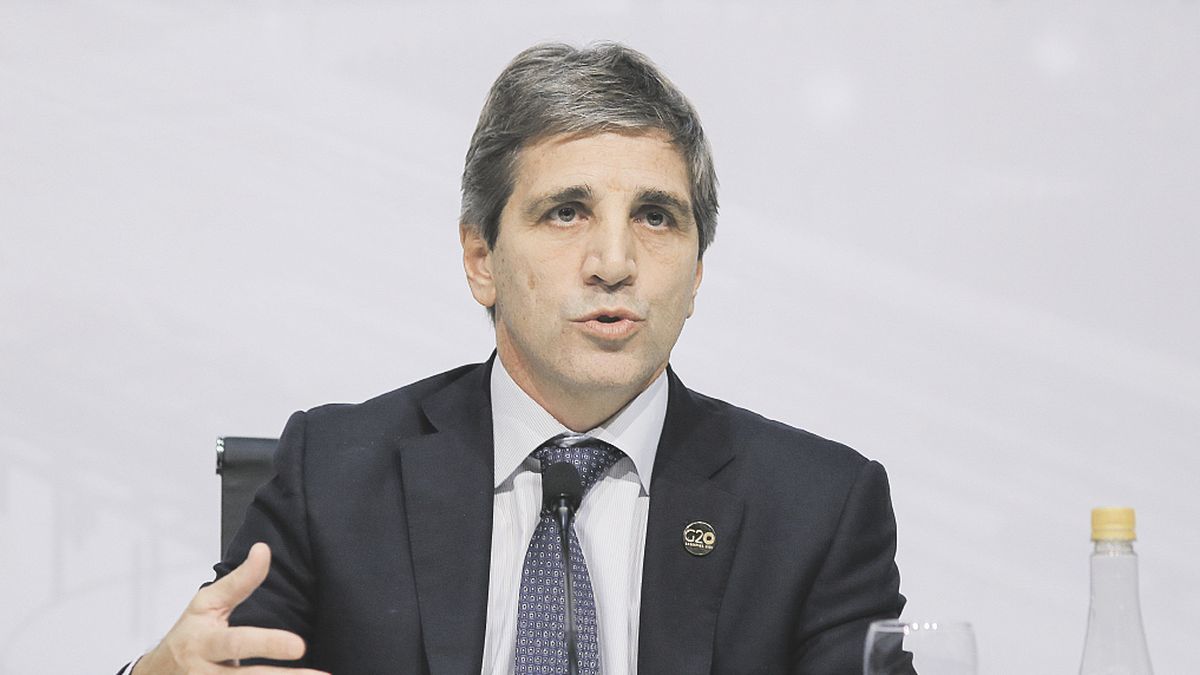Orthodoxy and fiscal and monetary shock from the beginning, gradualism for the lifting of the stocks, market exit for the Leliq and dollarization as a topic to be discussed “later.” This could summarize the message that Luis “Toto” Caputo transmitted to the country’s main private bankers last Friday in a meeting organized after it emerged that he is the main candidate to lead the Ministry of Economy as of December 10, although The decision is not yet confirmed.
The former Minister of Finance and former President of the Central Bank of Mauricio Macri was heard by members of Adeba and ABA, the chambers that bring together private financial entities with national and foreign capital, concerned about the lack of details about the solution that he will seek to give to the stock of remunerated liabilities of the BCRA the government of Javier Milei as a prior step to the lifting of the exchange rate. Both Caputo and the bankers agreed that it was a good meeting. The current head of the consulting firm Anker Latin America sought to provide peace of mind that there will be no disruptive solution to disarm the Leliq: there is no bonex plan or re-profiling, was one of the messages transmitted.
The disarmament of the Leliq (which together with the Passes today represent a stock of more than $23 billion) is one of the tasks that the economic team designated by Milei will be dedicated to. The main candidate for the Treasury Palace is precisely Caputo. For the BCRA, neither Emilio Ocampo (the mentor of the dollarization plan that La Libertad Avanza promoted during the La Libertad Avanza campaign) nor Demian Reidel (a man close to Federico Sturzenegger, who was responsible for ruling him out via social networks) are no longer in the race.
Although Caputo’s position is not confirmed, it is shown to be his main economic sword. In addition to the meeting with the banks, “Toto” is part of the delegation that accompanies Milei on her first trip to the United States. As they pass through New York and Washington, they will maintain contacts with the IMF and the Government of Joe Biden. Sources consulted assure that the visit will be to explain the economic plan but not to seek financing.
Likewise, members of Anker Latin America, led by Martín Vauthier (see page 10), maintained contacts with Vice Minister Gabriel Rubinstein within the framework of the transition.
Guidelines
Before the banks, Caputo avoided giving details about the fiscal, monetary and exchange program. However, he left a series of important guidelines on the imprint that the first measures of the next government will take.
We will work with a focus on moving towards financial balance (primary plus debt interest) from day one. It will be a shock and orthodox plan in fiscal and monetary terms. That is, the chainsaw will be on from the beginning. The bankers took away the idea that they will seek to create a fiscal and monetary anchor for the stabilization plan.
What will not happen from day one is the lifting of the stocks. The exchange rate unification, as Milei had anticipated in different interviews as president-elect, will come after the Leliq ball is cleared. This does not mean that, while controls on the exchange rate are maintained, there will not be a considerable devaluation. In fact, the market is pricing in a strong jump in the official dollar in December (see page 4). Regarding the Leliq, doubts persist about the mechanism it will use for disarmament. The banks promote a gradualist solution, but Milei seems to lean towards shock. Caputo’s presence predicts that the way could be external debt.
However, the former official stated that at some point, through stabilization, there will once again be demand for credit where to channel the deposits, which today are mostly channeled to Leliq. And he pointed out that regulations on financial margins will have to be dismantled.
Specifically regarding dollarization, it was mentioned that it could solve the problem of money demand and exchange rate volatility, but that it is not viable today. And it was revealed that there would be no attempt to advance this during this mandate, although it would lay the foundations for the debate once macroeconomic stabilization has been achieved.
Present at the meeting were Facundo Gómez Minujín (JP Morgan), Patricio Supervielle (Supervielle), Jorge Brito (Macro), Martín Zarich (BBVA), Alejandro Butti (Santander), Guillermo Laje (Ciudad), Javier Bolzico (Adeba), Juan Nápoli (Banco de Valores) and Fabián Kon (Galicia).
Source: Ambito




